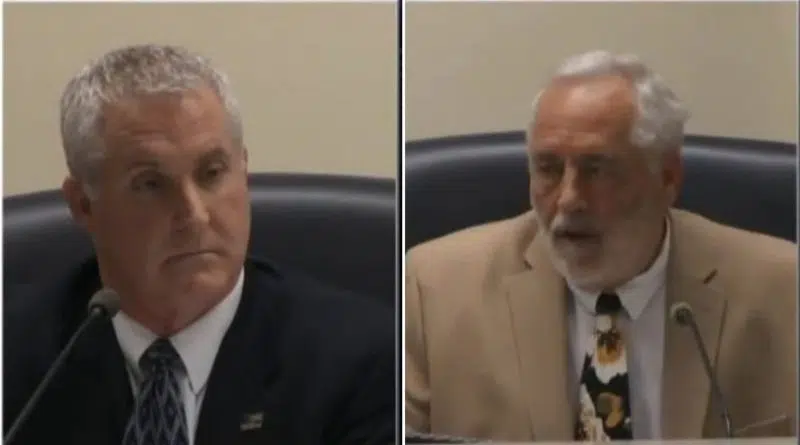EAST PEORIA, Ill. — By a 3-2 vote, East Peoria City Council on Tuesday night approved to further its partnership with Prochamps, an outsourced service that helps track down owners of vacant and foreclosed properties.
The city has used the service since 2019. As of the end of 2020, Prochamps had registered 296 properties and had brought the city over $42,000 worth of non-tax revenue from the $250 fees imposed upon the respective property owners.
“The advantages of it, one, it’s an alternative revenue source,” said Commissioner Mark Hill.
“It’s a tool we use to manage vacant and foreclosed properties. There are 296 properties we have [registered], and not all of those are as easy as looking up the tax record and finding the true owner of the property, because sometimes the tax records aren’t updated when properties change hands with banks and foreclosures, so this is a tool that’s been very valuable to the city.
“There’s no cost to the city. It’s a fee-based service where the service that does most of the legwork collects the fee, and we get part of that fee back.”
The city collects $150, while Prochamps keeps the other $100.
Commissioner Dan Decker was another of the “yes” votes, using the story of a property that had a structure fire to illustrate his reasoning.
“It ultimately sat six, seven, or maybe eight years, through the court process and changing hands and everything else that happened, and it became an eyesore to the community,” he said.
“It’s not easy to tell people well, there’s nothing we can do about it, and they look at us for assistance and we can do nothing about it.
“It makes that process easier in figuring out where to go, like the root of the problem, to see who, exactly, is ignoring the property.”
Mayor John Kahl was the tiebreaking “yes” vote.
Commissioners Michael Sutherland and Seth Mingus were the dissenters.
Sutherland was the more vocal “no” vote.
“This is big brother stuff, as far as I’m concerned. It’s another layer, it’s a control issue,” he said.
“Stay out of my billfold, stay out of my bedroom, and this is another instance of the city telling me how many garbage cans I can have, how many lawnmowers I can have if I have any at all, [and] whether I have a service or not. I think it’s us eating our own.
“Listen, if I want to know who owns a property, I can get on the internet, and I can look up the tax ID number through the address, and I can find it, lickety-split. And if you do have a problem with that, which very seldom ever happens, then we can hire an attorney to do this, or we have our own in-house people who could hunker down and do this.”
Hill referenced a checklist of criteria, of which at least three must be met in order for a property to be considered vacant or foreclosed:
- Vacant more than 30 days
- Overgrown or dead vegetation
- Mail delivery halted
- Past due utility notices
- Disconnected gas
- Disconnected electric
- Disconnected water
- City mowed
- Accumulated refuse
- Abandoned vehicles or parts
- Absence of furnishings
- Stagnant pool
- Accumulation of “junk mail”
- Boarded doors or windows
- Neighbor statements
- Taxes sold
- Foreclosure notice sent to city
Sutherland rebutted with an anecdote of his own.
“This was brought to my attention when a friend’s father had passed away. He left the house exactly the way it was, he stayed there every once in a while, he maintained it perfectly, and the neighbors were saying there were people peering in his windows and walking around back, and then he got one of these letters,” he said.
“That [isn’t] up to us. That’s not our business unless there’s a complaint.
“I think — and I’ve always said this — our inspection department and our code enforcement should be complaint-driven. They shouldn’t be driving around and trying to find somebody that’s got a problem, because it could be a one-day problem or two-day problem, and if it is a problem, I think a neighbor would have something to say.”
The new three-year term goes into effect on Apr. 12, when the current agreement expires.




